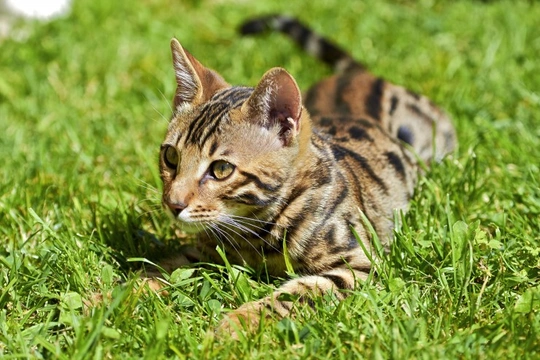
Glomerular Disease in Cats
Glomerular Disease is a disorder that negatively impacts a cat's kidney function and it's caused by inflammation that occurs in their capillaries which are found in the organs which filters out waste matter from blood so it passes into the urine before being secreted out of the body. When cats develop glomerular disease, it is usually because toxins or enzymes get stuck and build up in these capillaries which are known as glomeruli. Both female and male cats can be affected, although the disorder tends to be seen in males that much more.
Symptoms to watch out for
The symptoms of there being something wrong with a cat depends on the underlying cause of the problem. This could be due to the following:
- Inflammation
- Infection
- Neoplasia
Some cats only show signs of weakness and weight loss which means that the condition often goes unnoticed until it is in its late stages or it is picked up by the vet during an annual health check when high levels of proteins are discovered in a cat’s urine. Should a vet find there is a large build-up of protein in urine, cats often have swollen abdomens due to fluids being retained which is a condition known as ascites.
In the advanced stages of the condition which leads to kidney failure, the symptoms to watch out for include the following:
- An increased thirst
- An increased need to urinate
- Lack of appetite leading to loss of weight and condition
- Nausea
- Vomiting
- Difficulty breathing
- Severe panting
- High blood pressure which can lead to blindness
The Causes
As previously mentioned there could be several reasons why a cat develops the condition which includes the following:
- Inflammation
- Infection
- Neoplasia - tumour
- Diabetes mellitus
- Long-term use of specific medication and drugs
- Idiopathic - the cause is unknown
Diagnosing the condition
Ideally the vet would need to have a cat's full medical history and be told of how the onset of any symptoms first presented themselves. The sort of tests the vet would need to carry out to confirm a preliminary diagnosis are as follows:
- A complete chemical blood profile
- A complete blood profile
- A urinalysis
- A biochemistry profile
- Abdominal X-rays
- Ultrasound
- Kidney biopsy
Treatment Options
The treatment options available rather depend on the underlying cause of a cat having developed glomerular disease. Treatment can often prove challenging and if a cat's kidneys have been severely impacted, the prognosis tends to be very poor.
Managing the condition
The vet would typically recommend putting a cat on a specific diet to help support their kidneys which is usually a high quality, low sodium, low protein diet. Medication is passed out through a cat's kidneys and as such careful dosage is crucial. A cat would need to be taken to the vet on a regular basis to check on their condition and to make sure the medication they are taking is working. If needed, their medication might need to be adjusted which the vet would prescribe once they have received the results of any further tests they carried out.



